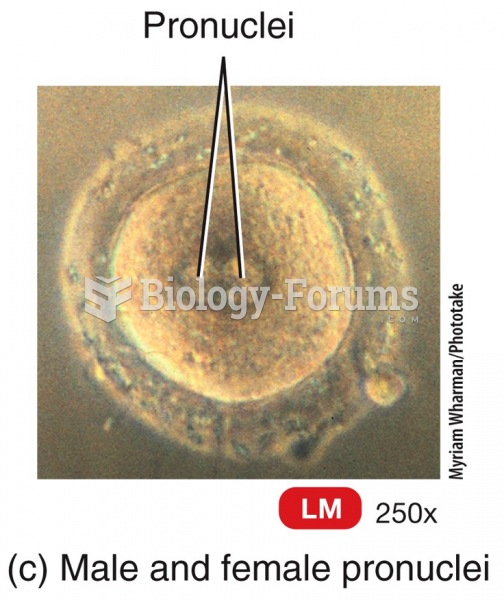|
|
|
Approximately 500,000 babies are born each year in the United States to teenage mothers.
Although the Roman numeral for the number 4 has always been taught to have been "IV," according to historians, the ancient Romans probably used "IIII" most of the time. This is partially backed up by the fact that early grandfather clocks displayed IIII for the number 4 instead of IV. Early clockmakers apparently thought that the IIII balanced out the VIII (used for the number 8) on the clock face and that it just looked better.
According to the National Institute of Environmental Health Sciences, lung disease is the third leading killer in the United States, responsible for one in seven deaths. It is the leading cause of death among infants under the age of one year.
Earwax has antimicrobial properties that reduce the viability of bacteria and fungus in the human ear.
On average, someone in the United States has a stroke about every 40 seconds. This is about 795,000 people per year.







